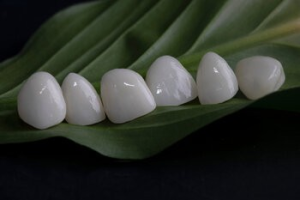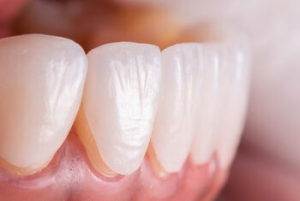Veneers Cost Per Tooth: A Comprehensive Guide

Introduction
Having a beautiful smile is an important part of feeling confident and self-assured. Veneers can be a highly effective cosmetic dental treatment for those who want to improve their smile. However, one aspect that many individuals often overlook is the cost of veneers, particularly veneers cost per tooth. If you are contemplating getting veneers, it is important to know the different types of veneers, their associated costs, and any other considerations that may affect the final price. To help you understand the veneer’s cost per tooth better, we have created this comprehensive guide that covers everything you need to know.
What Are Veneers
Veneers are custom-made shells that fit over the front surfaces of your teeth. They are wafer-thin, tooth-coloured coverings designed to improve the appearance of your teeth. Veneers can be made of porcelain or composite resin materials and fix cosmetic dental issues such as cracked, chipped, misshapen, or discoloured teeth. Veneers are a cosmetic treatment and don’t necessarily strengthen or repair your teeth. The lifespan of dental veneers depends on the type and how well you care for them. Porcelain veneers can last from 10 to 12 years, while composite resin veneers need to be replaced sooner since they last for around 4 to 8 years.
Types of Veneers
Porcelain Veneers
These veneers are made of a thin layer of porcelain material and are custom-designed to match your natural teeth. They are highly durable and resistant to staining, making them a popular choice for long-lasting solutions. Porcelain veneers require at least two visits to the dentist and are generally more expensive than composite veneers.
Composite Veneers
These veneers are made of tooth-coloured composite resin material bonded directly onto the tooth’s surface. They are less expensive than porcelain veneers but may only last briefly. Composite veneers can be completed in a single visit to the dentist, making them a quicker and more cost-effective option.
In addition to porcelain and composite veneers, there are also two categories of veneers based on how they are made and applied:
Direct Veneers
These veneers are made of composite resin material and are applied directly to the tooth by the dentist during the same visit. With direct veneers, there is no need for a dental lab as the dentist creates them chairside.
Indirect Veneers
These veneers are fabricated in a dental laboratory and placed on the teeth during a separate visit. Porcelain veneers fall into this category. Indirect veneers require more preparation time and a longer process. However, because they are customised for each patient, they can provide a natural and long-lasting solution for cosmetic dental issues.
Benefits of Veneers
Improved Appearance
Veneers can greatly improve the appearance of your teeth, providing a more uniform and aesthetically pleasing smile. They can address various cosmetic dental issues, such as chipped, misshapen, or discoloured teeth. With veneers, you can achieve the smile that you’ve always wanted.
Minimal Tooth Reduction
Compared to other dental procedures, veneers involve minimal tooth reduction, meaning that more of your natural tooth structure is preserved. This makes veneers a conservative option for improving the appearance of your teeth.
Durability
Porcelain veneers are highly durable and resistant to staining. With proper care, they can last for many years. Composite veneers are less durable than porcelain, but they are still an effective option for improving the appearance of your smile.
Natural Look
Veneers are custom-made to match the colour and shape of your natural teeth, providing a natural-looking result. Porcelain veneers, in particular, have a translucent quality that mimics the look of natural tooth enamel, giving you a beautiful, natural-looking smile.
Versatility
Veneers can be used to address a wide range of cosmetic dental issues. They can close gaps between teeth, lengthen teeth that appear too short, and even improve the appearance of slightly crooked teeth. Veneers are a versatile cosmetic dental solution to help you achieve your desired smile.
Immediate Results
With veneers, you can see an immediate improvement in the appearance of your teeth with little to no downtime. After your veneers are placed, you can leave the dentist’s office with a new smile you’ll love.
Minimal Maintenance
Veneers require minimal maintenance beyond regular brushing and flossing, making them a convenient option for those with busy lifestyles. Brush and floss your veneers like your natural teeth, and visit your dentist for regular checkups and cleanings.
Factors that Affect the Cost of Veneers per Tooth
Materials Used in Making Veneers
One factor that can influence the cost of veneers per tooth is the materials used. There are two main types of veneers: porcelain and composite resin. Porcelain veneers are more expensive but are durable, stain-resistant, and long-lasting. Composite veneers, on the other hand, are a more affordable option that may not last as long as porcelain but can be repaired or replaced more easily. Your dentist can discuss the pros and cons of each type of veneer with you and help you make the best decision for your needs and budget.
Location of the Dental Practice
The location of the dental practice can also affect the cost of veneers per tooth. Like other services, the living and business expenses in urban areas are generally higher than those in rural areas. While having your veneers done in a big city may be more expensive, it may also offer more options and experienced cosmetic dentists. Additionally, some countries offer dental services cheaper than Australia, which may be a factor to consider for those looking for affordable dentistry.
Skill and Reputation of the Dentist
The skill and reputation of the dentist performing the procedure can impact the cost of veneers per tooth. Like any complex dental treatment, choosing a qualified and experienced cosmetic dentist is essential. A reputable dentist may charge a higher fee for their expertise, but you are much more likely to achieve high-quality dental veneers and avoid potential complications or mistakes.
The Complexity of the Case
Finally, the Case’s complexity can affect the cost of veneers per tooth. Cases that require more work may require additional treatments that will add to the overall cost, including X-rays, dental cleaning, or teeth whitening. The number of teeth being treated and the current health of your teeth may also be considered when determining the cost.
Comparison of Costs Between Porcelain and Composite Veneers in Different Countries
 Australia – Porcelain veneers can cost AUD 1200 per tooth, while composite veneers cost around AUD 650 per tooth. The cost of veneers in Australia can vary depending on factors such as the dental clinic’s location, the dentist’s experience, and the Case’s complexity.
Australia – Porcelain veneers can cost AUD 1200 per tooth, while composite veneers cost around AUD 650 per tooth. The cost of veneers in Australia can vary depending on factors such as the dental clinic’s location, the dentist’s experience, and the Case’s complexity.
India – Porcelain veneers generally cost around INR 8000 per tooth, while composite veneers cost around INR 3000 per tooth. The cost of veneers in India is generally much more affordable than in other countries, making it a popular destination for dental tourism.
Malaysia – Porcelain veneers cost around MYR 900 per tooth, and composite veneers cost around MYR 450 per tooth. The cost of veneers in Malaysia is generally less expensive than in other countries due to the lower costs of labour and materials.
Thailand – Porcelain veneers can cost around THB 12000 per tooth, while composite veneers cost around THB 5000 per tooth. The cost of veneers in Thailand is relatively affordable compared to other countries, and the country is known for offering high-quality dental care at a lower cost.
Composite veneers are generally less expensive than porcelain veneers because they are made from a less expensive material and require less preparation in the dentist’s chair. However, porcelain veneers are more durable and have a longer lifespan than composite veneers. Additionally, porcelain veneers have a more natural appearance that closely mimics the look of natural teeth. Your dentist can help you determine which type of veneer is best suited for your dental health and goals, considering both the cost and benefits of each option.
Why Opt for Australia?
There are several reasons why people should consider Australia as a destination to get veneers:
High-Quality Dental Care
Australia is known for its high-quality dental care, with many skilled and experienced dentists offering a range of cosmetic dental procedures, including veneers. The country has a reputation for using the latest technology and techniques in dental care, ensuring that patients receive top-notch treatment.
Affordable Veneer Options
While the cost of veneers in Australia may be higher than in other countries, the quality of the materials and the dentists’ expertise make it worth the investment. Additionally, affordable composite veneer options in Australia can be more cost-effective than porcelain veneers.
Customised Treatment
Dentists in Australia take a personalised approach to dental care, working closely with patients to create a customised treatment plan that meets their unique needs and goals. Patients can expect to receive individualised attention and care throughout the veneer process.
 Strict Standards and Regulations
Strict Standards and Regulations
Australia has strict standards and regulations for dental care, ensuring that patients receive safe and high-quality treatment. This provides peace of mind for those considering getting veneers in the country.
Beautiful Surroundings
Australia is known for its natural beauty, which can make the veneer process more enjoyable for patients. Whether you visit the coastal regions or the lush green forests, Australia offers stunning scenery that can help create a relaxing and calming environment during dental treatments.
Overall, Australia offers high-quality dental care, affordable veneer options, customised treatment plans, strict standards and regulations, and beautiful surroundings, making it an attractive option for those considering getting veneers.
Insurance Coverage for Veneers
Dental insurance usually does not cover veneers as they are considered cosmetic treatments. However, some insurance companies might provide partial coverage if the veneers are needed due to a dental accident. It is recommended to check with your insurance provider regarding their veneer policy.
Tips to Maximise Insurance Benefits for Veneers
There are a few ways to maximise your insurance benefits for veneers. Here are some of them:
Check your dental insurance policy for any cosmetic procedure coverage.
If your dental insurance does not cover veneers, you can opt for flexible spending or health savings accounts to pay for the treatment.
Schedule the veneer treatment towards the end of the year to take advantage of any remaining insurance benefits.
Consider combining multiple dental treatments and using insurance for partial coverage.
Conclusion
In conclusion, veneers are an excellent cosmetic treatment for enhancing their smile. When considering the veneers cost per tooth, choose a trusted and experienced cosmetic dentist and discuss your payment options. Remember, investing in quality dental veneers is also about investing in the health of your teeth and gums. With this guide, we hope it has provided you with a better understanding of the veneers treatment, the types of veneers, and their associated costs, which will help you make an informed decision for achieving those healthy-looking teeth! Contact us today to schedule your first appointment.
References:
Porcelain for veneers https://pubmed.ncbi.nlm.nih.gov/9893514/
Fracture strength of different veneers on polyetheretherketone (PEEK) frameworks in implant-supported single crowns https://pubmed.ncbi.nlm.nih.gov/35986930/

